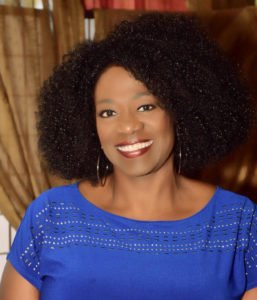Shawn LaRé Brinkley is a certified trauma recovery specialist, with a Master’s of Science in Counseling, Marriage, Family and Child Therapy, which she earned from the University of Phoenix. Brinkley gained the prestigious Distinguished Alumni Leadership Award, University of Phoenix, in 2018.
Her company, Living Loved Pathways to Holistic Healing, has been a treatment solution for families as well as those affected by traumatic events since 2012. Shawn LaRé uses an integrative method of therapy that combines traditional treatment techniques, like talk and cognitive behavioral therapies, with nontraditional modalities, such as music, movement, and art therapy.

Lisa C. Williams: “Shawn LaRé, what is your area of specialty?”
Shawn LaRé Brinkley: I’m a trauma recovery specialist, and I have an interest in helping people overcome trauma that they have experienced. I have extensive experience working with girls who have a history of human sex trafficking. I started that work when I was working in a group home where I was the therapist and administrator; it was a six-bed group home for girls, and I was introduced to human sex trafficking, without any particular training in that area. It really helped that I had a background in trauma when I was introduced to those girls. Working with them has become a passion of mine. It’s my heart work.
Lisa Williams: “I assume people deal with trauma differently. What’s the difference with men and women, and who do you find yourself working with the most?”
Shawn LaRé Brinkley: Men and women do deal with trauma differently, and I would say I work with more women. Many women experience trauma in a way that they don’t allow themselves to acknowledge. There is this need to keep going, not allowing themselves to feel the pain. I feel like some men sometimes acknowledge their trauma in ways where they use their power over others.
So, when it comes to really working it (trauma) out, I don’t think men are actually working it out. I think they’re just actually compressing it and then impressing their trauma onto other people. So, often, men who have trauma tend to act out in violent ways. Well, actually, both men and women do this.
Some men deal with trauma externally, and women, sometimes tend to deal with trauma internally or not deal with it at all.
Let me clarify something: Now, the truth is that these men are still experiencing their trauma internally because it’s the internal forces that progressed to make them act out externally. But women, I think, deal with their trauma in ways that can be self-destructive, and their interpretation of their trauma always points back to them. Trauma manifests in self-destructive ways, no matter the gender; so there really is no concrete pattern for how we express our trauma
Lisa C. Williams: “What forms of traumas can you help women deal with?”
Shawn LaRé Brinkley: Mental, physical abuse, domestic violence, childhood sexual abuse, sexual assault in the form of a rape, and all types of emotional abuse. Even as an adult, emotional abuse can be very debilitating.
Lisa C. Williams: “How can you help someone who is struggling with tragedies they see in the news or on social media like trending traumas—school shootings, like the mass shooting in Las Vegas, or even terrorist attacks?
Shawn LaRé Brinkley: Yes, what you are referring to is called vicarious trauma. Vicarious trauma is trauma where, although we were not there when those incidents happened, we have a fear perhaps of going to a concert or school. I think that the sad thing is that when I used to go to school, I used to be maybe worried about somebody who might’ve been a bully and just maybe kicking my butt a little bit. But these children today are faced with “Will I die?” “Will someone come into my school and kill us?” And for the parents, they are at home, wondering, “Can I send my child to school?”
I’ve had parents tell me that they cringe every time the phone rings, and it’s their child because there are so many dangerous occurrences happening today. Parents are no longer worrying about whether their child got in a fight at school or broke a leg or an arm; instead, they worry: “Is my child in the middle of a shooting incident?” A whole new set of worries. Trauma lives in the body, and fear lives in the body also. Children should be concentrating on their ABCs, reading, writing, and arithmetic at school, and they are now having reoccurring drills at school to keep them safe. I remember tornado drills, fire drills, etc. I’m from the Midwest; we had tornado drills, and those were scary. Imagine active shooter drills. That’s got to be really scary. And the part that breaks my heart the most is that for many of our children, this is their norm. I wonder how even these active shooter drills are affecting them long term. Families and children need to work through these traumatic things they are experiencing; many don’t realize it is affecting them.
Lisa C. Williams: “So what is the definition of trauma?”

